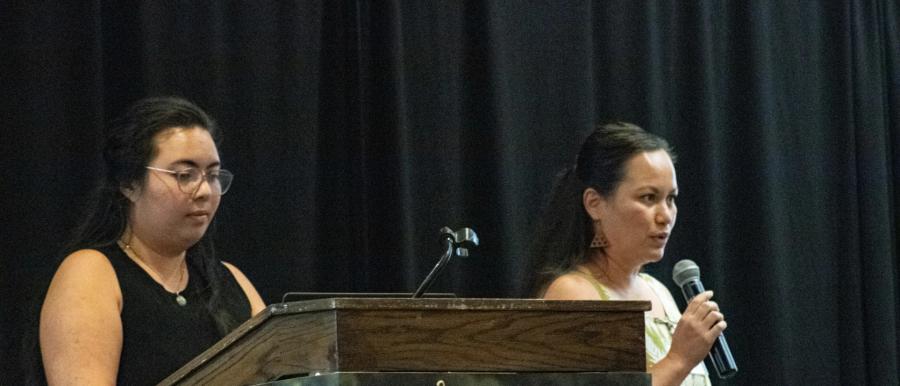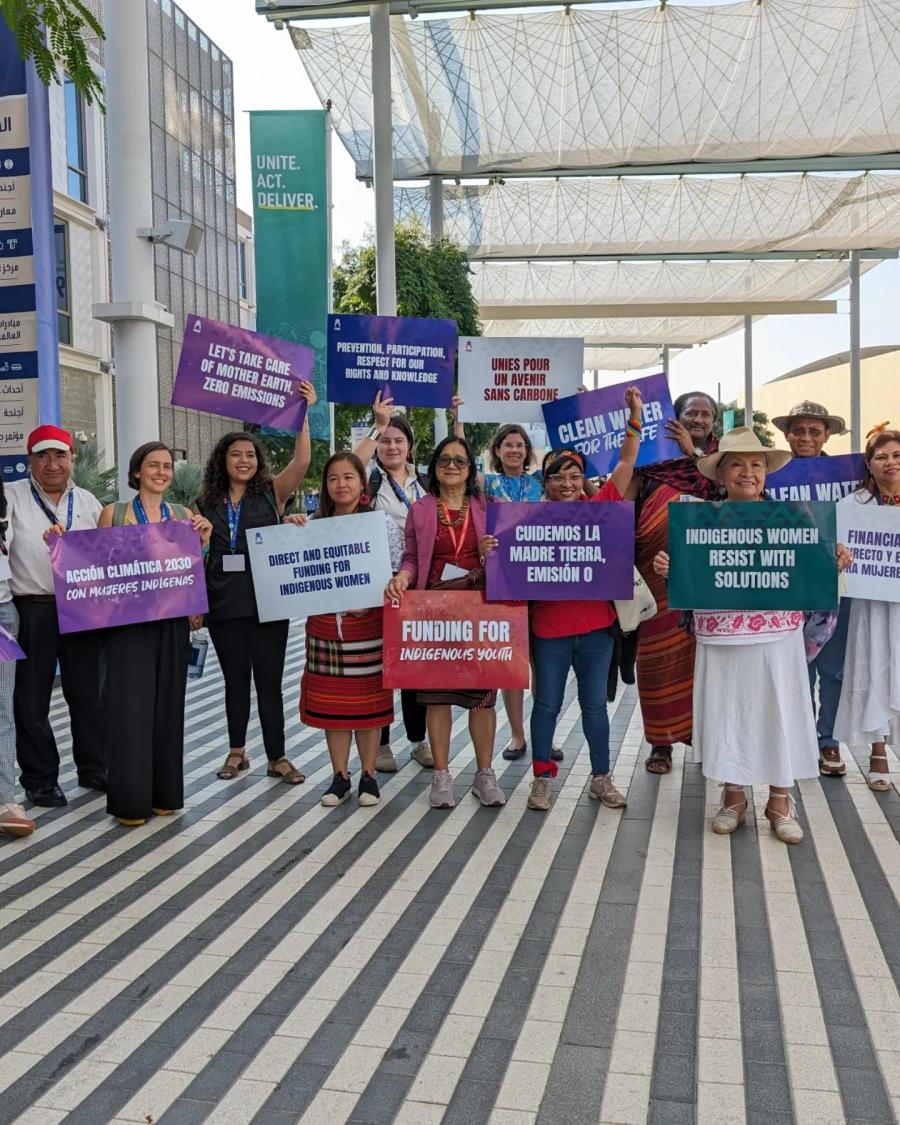It's a common human tendency - sometimes a failing, sometimes a relief - to resort to certain phrases day after day as short-cuts. The speaker or writer apparently knows that the phrases mean; all too often others don't.
A particular two-word phrase running through the pages of CSQ needs elaborating because it is key to advancing the rights of indigenous peoples, not to mention the rights of all of us. The phrase is "group rights." This concept is one of the basic principles of organizations like Cultural Survival, yet it is often misunderstood, minimized, and, among some human-rights advocates, even denounced as divisive and contrary to the rights of individuals.
The concept of group rights, like those rights themselves, needs defining, because we are identified in some way with others. For indigenous people (the "target population" for the social scientists who founded Cultural Survival), group rights include the ability of an indigenous society to maintain its language, spiritual practices, economic systems, and so forth. In the absence of these rights, societies die. Group rights also include the rights of women, people of color, elders, and so forth to protection from any discrimination based on their shared membership in a collective identity.
Group rights relate to the rights of individuals, and they involve far more than just a moral assertion that cultures have a right to exist. Rather, groups rights are a practical principle involving individuals: without their collective culture to support them, individuals are at risk. As E.P. Thompson and other historians have pointed out, the making of an English working class required the undermining of a previous agrarian, communal culture. For U.S. Indians, Australian Aborigines, and a host of other indigenous peoples, breaking down the patterns of tradition-based human interactions often leads to high rates of unemployment, suicide, alcoholism, and infant mortality.
On a fundamental level individual rights mean little without group rights. It is certainly possible, for example, and all-too-common, for individuals to go to court, one after another to defend the same constitutional rights. But even if each plaintiff has a reasonable chance of winning, the process is inefficient, and each case may leave an unjust law standing or a host of criminals untouched. In rare instances, like Brown vs. the Topeka Board of Education, the edifice supporting widespread rights violations may be undermined when the plaintiffs marshal the breadth of resources needed to get to Supreme Court. More often, the next victim of the same injustice has to repeat the fight.
Class-action suits, in contrast, predicated on shared injustices, have the potential to both redress matters for all those wronged and to put a great deal of fear into those who ignore basic justice under the presently well-founded assumption that the punishment for such action does not fit the crime. The power of such suits is widely recognized. That's why successive Republican administrations tried to limit the ability of the Legal Services Corporation, the federal legal advocate for poor people, to engage in class-action suits in support of the rights of, say, women, or the victims of corporate abuse, or the buyers of defective merchandise.
It is a praiseworthy endeavor to defend the rights of every oppressed individual. Indeed, most rights advocates choose to highlight the cases of particularly endangered individuals to draw attention to a broader denial. This strategy mobilizes tens or hundreds of thousands of well-meaning people in the United States and Europe to defend the rights of perhaps thousands of wronged individuals, sometimes in their own countries, more often in other states. Such work has yielded many significant victories, but like one person's lawsuit, the approach is inefficient and not up to the enormity of rights violations throughout the world.
The strategy underlying a focus on group rights is to mobilize the same tens of thousands of concerned Americans and Europeans to stop the abuse of millions of people throughout the world - and perhaps to prevent more of these violations from ever occurring.
In any meaningful sense, the battles for group and individual rights and one and the same. In acclaiming Rigoberta Menchú Tum, the Nobel Prize Committee supported the struggle of Mayans against the Guatemalan government. Whether Americans call for the freedom of Nelson Mandela or for freeing all the indigenous people of South Africa, the goal is the same. In pleading for the right to survive of a woman or child in Bosnia, the principle is for the right of the multiethnic conclave of Bosnia to exist and thrive. In each case, a few of those responsible for a mass crime may at some point come to trial for the murder of individuals. But to prevent such horrid episodes, potential perpetrators must realize that the court of world opinion will convict and punish them for their crimes, including that of genocide, the ultimate violation of group rights.
Recently, a half dozen refugees from East Timor, including a leader of the underground resistance, visited Cultural Survival to seek our help in publicizing the continuing occupation of their homeland by the Indonesian military. Certainly, the freedom of each of these visitors is precious, yet they also represent the some 200,000 East Timorese killed since Indonesia's 1975 invasion of their territory. By recognizing and using the power of group rights, perhaps human-rights activists can not only make it possible for our friends to return home as free individuals, but also that they will return to a free East Timor.
Article copyright Cultural Survival, Inc.



